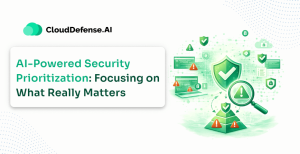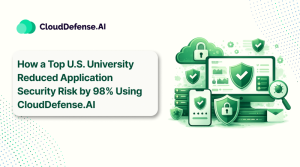What is a Remote Access VPN?
A Remote Access VPN allows remote workers to securely connect to applications and data housed within their company’s data center and headquarters.
By encrypting all transmitted traffic, this type of VPN ensures that the data remains secure and inaccessible to unauthorized eavesdroppers.
Essentially, a secure remote access VPN establishes a private, encrypted tunnel between the corporate network and the remote user, enabling them to use the network just as they would if they were physically present in the office. This setup protects the data from interception and ensures its integrity, allowing for safe and efficient remote work.
How do Remote Access VPNs Work?
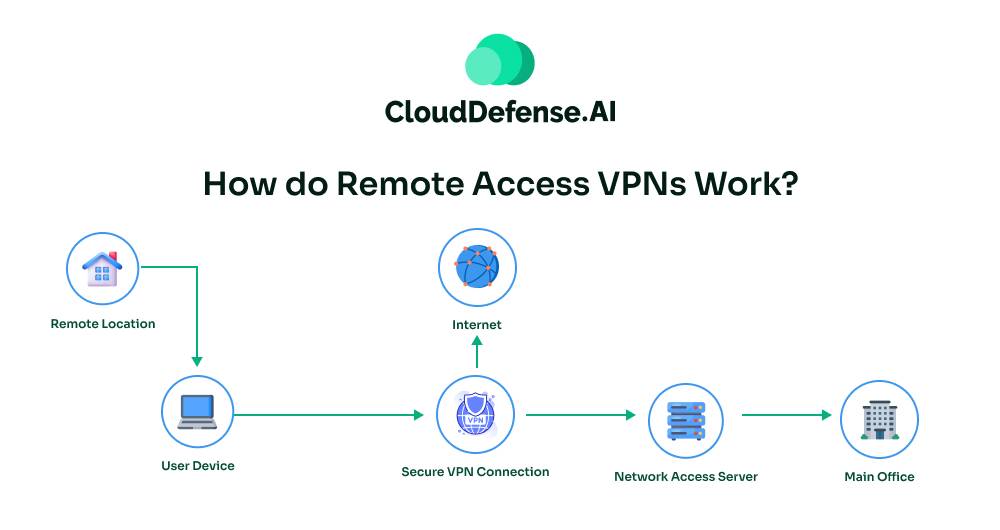
A remote access VPN creates a secure, encrypted connection between a user’s device and the corporate network. The process begins with the VPN client on the user’s device, which handles the initial authentication to ensure that only authorized users can connect. After successful authentication, the VPN client software establishes an encrypted tunnel to the VPN gateway, which serves as the VPN server.
This gateway manages the secure path for data transmission, ensuring that it remains encrypted and safe even when data travels over public internet networks. This encryption preserves the confidentiality and integrity of the data, making it inaccessible to unauthorized parties. The encrypted tunnel effectively extends the corporate network to the remote user, enabling safe access to internal resources like applications, file servers, and databases.
Remote access VPNs often incorporate advanced security features like multi-factor authentication and robust encryption standards. These additional layers of security help maintain the connection’s privacy and protect the corporate network from potential threats that remote devices might introduce.
Benefits of Remote Access VPN
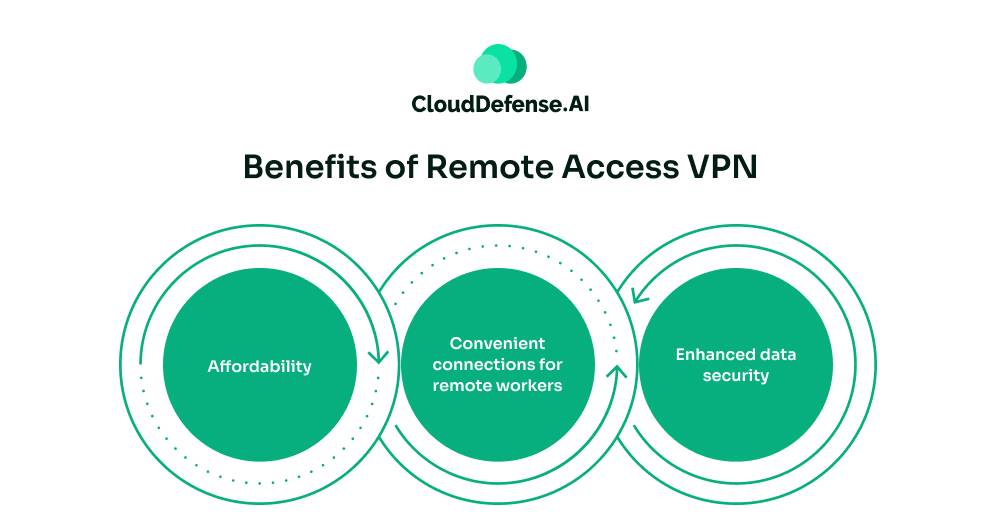
Remote access VPNs offer several key advantages for businesses:
Convenient connections for remote workers
With more employees working from various locations, remote access VPNs provide a practical and secure solution for accessing company files. Users simply connect their devices to the VPN and can securely access necessary resources without worrying about data being intercepted during transmission.
Affordability
While data security is crucial for business owners, it can be expensive to implement. Remote access VPNs present a cost-effective solution, allowing businesses to provide secure network connections to all employees without incurring significant costs.
Enhanced data security
The most significant benefit of remote access VPNs is their heightened data security. By encrypting data, remote employees can transmit information securely through the VPN, reducing the risk of hacker interception. This ensures that business operations can continue smoothly, regardless of employees’ locations.
Remote Access VPN vs Site-to-site VPN
The primary distinctions between site-to-site VPNs and remote access VPNs lie in their network connection architectures and intended use cases.
Site-to-site VPNs connect entire networks, securing traffic at the network’s edge. This setup allows multiple sites to share resources seamlessly, as though they were part of a single, unified network. It’s ideal for businesses with multiple locations needing constant, secure communication.
Remote access VPNs, on the other hand, are designed for individual users who need to access a corporate network from remote locations. These VPNs use client software installed on the user’s device to establish a secure tunnel to the network, ensuring that the connection remains private and secure.
Security Risks Associated with Remote Access VPN
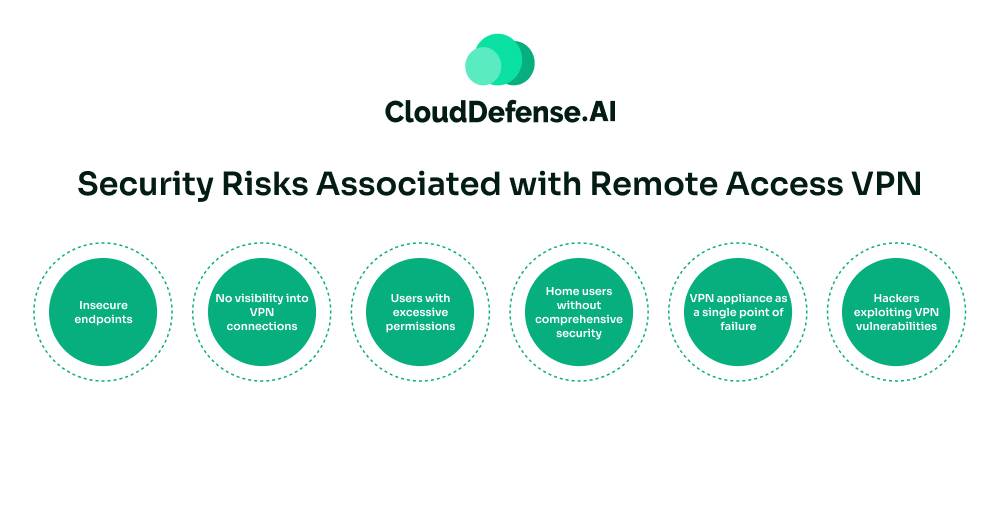
While VPNs typically provide basic security through user authentication and traffic encryption, they can also introduce several vulnerabilities and risks due to insufficient security measures. These risks include:
Insecure endpoints
VPNs do not assess the security posture of the devices connecting to the network, potentially allowing malware to infiltrate the system.
No visibility into VPN connections
The encryption provided by SSL VPNs can be a double-edged sword. It prevents network managers from monitoring the data being transmitted, which malicious employees can exploit to conduct insider attacks undetected.
Users with excessive permissions
VPNs cannot provide detailed user access control. Users connect using a shared pool of VPN-assigned IP addresses, which can allow them to access unapproved resources and potentially sensitive data and systems.
Home users without comprehensive security
While businesses typically have a full security stack in their main and branch offices, employee homes are not similarly protected, leaving them vulnerable.
VPN appliance as a single point of failure
If a VPN device fails or is compromised by a denial-of-service attack, it can lead to significant business interruptions, especially for organizations with a large remote workforce.
Hackers exploiting VPN vulnerabilities
Businesses must monitor for security flaws and ensure their VPN equipment is regularly updated and patched. Failure to do so can expose the enterprise to unpatched vulnerabilities, endangering the entire network.
Final Words
Remote access VPNs are invaluable tools for secure and efficient remote work. They offer enhanced data security, affordability, and convenience, making them a go-to solution for modern businesses. However, it’s crucial to be aware of potential risks and implement robust security measures to protect your network.
Understanding the benefits and challenges allows effective use of remote access VPNs for a flexible, secure work environment. Whether a business owner or employee, embracing this technology keeps data safe and operations running smoothly from anywhere.

